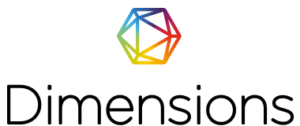PENERAPAN MODEL PEMBELAJARAN DISCOVERY LEARNING UNTUK MENINGKATKAN PRESTASI BELAJAR MATEMATIKA SISWA KELAS VII G SMP NEGERI 3 SUKOHARJO
DOI:
https://doi.org/10.32585/absis.v2i2.1125Keywords:
mathematics learning achievement, discovery learningAbstract
The objective of this classroom action research is to improve students' learning achievement of Mathematics through Discovery Learning Model in the class of VII during the 2nd semester at SMP Negeri 3 Sukoharjo in the academic year 2019/ 2020. This research is conducted from January to Juni 2020 at SMP Negeri 3 Sukoharjo. The subjects are 32 students of class VII G. This research is desaigned in two cycles. The data collection techniques are documentation, observation, and written tests. The data collection tools are observation sheets, test items, and score list documents. Analysis data use comparative descriptive analysis followed by reflection on each cycle consists of four steps, namely: (1) Planning, (2) Action Implementation, (3) observation, and (4) reflection. The results of this research indicate the increasing in students’ mathematics learning achievement. It can be seen from the average of learning achievement score of mathematics subjects, where the average score before action is 64,5, the average score of the first cycle is 72,3 and average score of the second cycle is 80,2. In addition, the percentage of students' learning mastery increase, before the action of 40,6%, in the first cycle of 68,8% and in the second cycle of 90,6%. So, it can be concluded that the Discovery Learning can improve the learning process and the mathematics learning achievement in the class VII G during the 2nd semester at SMP Negeri 3 Sukoharjo in the academic year 2019/ 2020.Downloads
References
Ismunandar, Denni. 2019. “Efektifitas Model Discovery Learning Di Kelas VIII Materi Relasi Dan Fungsi.” In Prosiding Seminar Nasional Pendidikan Matematika (SNPM), 62–72.
Kresma, Eka Nella. 2014. “Perbandingan Pembelajaran Konvensional Dan Pembelajaran Berbasis Masalah Terhadap Titik Jenuh Siswa Maupun Hasil Belajar Siswa Dalam Pembelajaran Matematika.” Educatio Vitae 1: 152–64.
Kristin, Firosalia. 2016. “Analisis Model Pembelajaran Discovery Learning Dalam Meningkatkan Hasil Belajar Siswa SD.” Jurnal Pendidikan Dasar PerKhasa 2 (1): 90–98. https://doi.org/10.32734/st.v2i2.532.
Mawaddah, Siti, and Ratih Maryanti. 2016. “Kemampuan Pemahaman Konsep Matematis Siswa SMP Dalam Pembelajaran Menggunakan Model Penemuan Terbimbing (Discovery Learning).” EDU-MAT: Jurnal Pendidikan Matematika 4 (1): 76–85. https://doi.org/10.20527/edumat.v4i1.2292.
Meilantifa. 2018. “Penerapan Model Pembelajaran Discovery Learning Dalam Pembelajaran Matematika Pokok Bahasan Lingkaran.” Jurnal Ilmiah Soulmath : Jurnal Edukasi Pendidikan Matematika 6 (2): 59–64. https://doi.org/10.25139/smj.v6i2.913.
Mubarok, Chusni, and Edy Sulistyo. 2014. “Penerapan Model Pembelajaran Discovery Learning Terhadap Hasil Belajar Siswa Kelas X Tav Pada Standar Kompetensi Melakukan Instalasi Sound System Di SMK Negeri 2 Surabaya.” Jurnal Pendidikan Teknik Elektro 3 (2): 215–21.
Nurmiati, Baiq. 2019. “Meningkatkan Motivasi Dan Hasil Belajar Peserta Didik Kelas VI Semester Dua Tahun Tahun Pelajaran 2017/2018 Dengan Mengoptimalkan Penerapan Model Discovery Learning Di SD Negeri 2 Cakranegara.” Jurnal Paedagogy 6 (1): 1–7.
Patandung, Yosef. 2017. “Pengaruh Model Discovery Learning Terhadap Peningkatan Motivasi Belajar IPA Siswa.” Journal of Educational Science and Technology (EST) 3 (1): 9–17. https://doi.org/10.26858/est.v3i1.3508.
Ponidi, Winia Waziana, Marilin Kristina, and Miswan Gumanti. 2020. “Model of Utilizing Discovery Learning to Improve Mathematical Learning Achievements.” Attractive: Innovative Education Journal 2 (1): 41–48.
Prasetya, Sukma Perdana. 2014. “Memfasilitasi Pembelajaran Berpusat Pada SIswa.” Jurnal Geografi.
Puspitadewi, Rizky, Agung Nugroho Catur Saputro, and Ashadi. 2016. “Penerapan Model Pembelajaran Discovery Learning Untuk Meningkatkan Minat Dan Prestasi Belajar Siswa Pada Materi Kelarutan Dan Hasil Kali Kelarutan Kelas Xi Mia 3 Semester Genap SMA N 1 Teras Tahun Pelajaran 2015/2016.” Jurnal Pendidikan Kimia (JPK) 5 (4): 114–19.
Sarumaha, Yenny Anggreini. 2016. “Perubahan Pembelajaran Yang Berpusat Pada Guru Ke Berpusat Pada Siswa.” Intersection Journal 1 (1): 1–10.
Sirait, Erlando Doni. 2016. “Pengaruh Minat Belajar Terhadap Prestasi Belajar Matematika.” Formatif: Jurnal Ilmiah Pendidikan MIPA 6 (1): 35–43. https://doi.org/10.30998/formatif.v6i1.750.
Siregar, Nani Restati. 2017. “Persepsi Siswa Pada Pelajaran Matematika: Studi Pendahuluan Pada Siswa Yang Menyenangi Game.” In Prosiding Temu Ilmiah X Ikatan Psikologi Perkembangan Indonesia, 224–32. https://www.google.co.id/search?q=Persepsi+siswa+pada+pelajaran+matematika%253A+studi+pendahuluan+pada+siswa+yang+menyenangi+game+Nani+Restati+Siregar1+1Mahasiswa+Program+Doktor+Psikologi+Universitas+Gadjah+Mada&oq=Persepsi+siswa+pada+pelajaran+matematika.
Wahjudi, Eko. 2015. “Penerapan Discovery Learning Dalam Pembelajaran IPA Sebagai Upaya Untuk Meningkatkan Hasil Belajar Siswa Kelas IX-I Di SMP Negeri 1 Kalianget.” Jurnal Lentera Sains (Lensa) 5 (1): 1–15. http://artikel.dikti.go.id/pelatihan/index.php/pojs04/article/view/571.
Downloads
Published
How to Cite
Issue
Section
License
Authors who publish with the Absis: Mathematics Education Journal agree to the following terms:
- Authors retain copyright and grant the journal the right of first publication with the work simultaneously licensed under a Creative Commons Attribution License (CC BY-SA 4.0) that allows others to share the work with an acknowledgment of the work's authorship and initial publication in this journal.
- Authors are able to enter into separate, additional contractual arrangements for the non-exclusive distribution of the journal's published version of the work (e.g., post it to an institutional repository or publish it in a book), with an acknowledgment of its initial publication in this journal.
- Authors are permitted and encouraged to post their work online (e.g., in institutional repositories or on their website) prior to and during the submission process, as it can lead to productive exchanges, as well as earlier and greater citation of published work.







